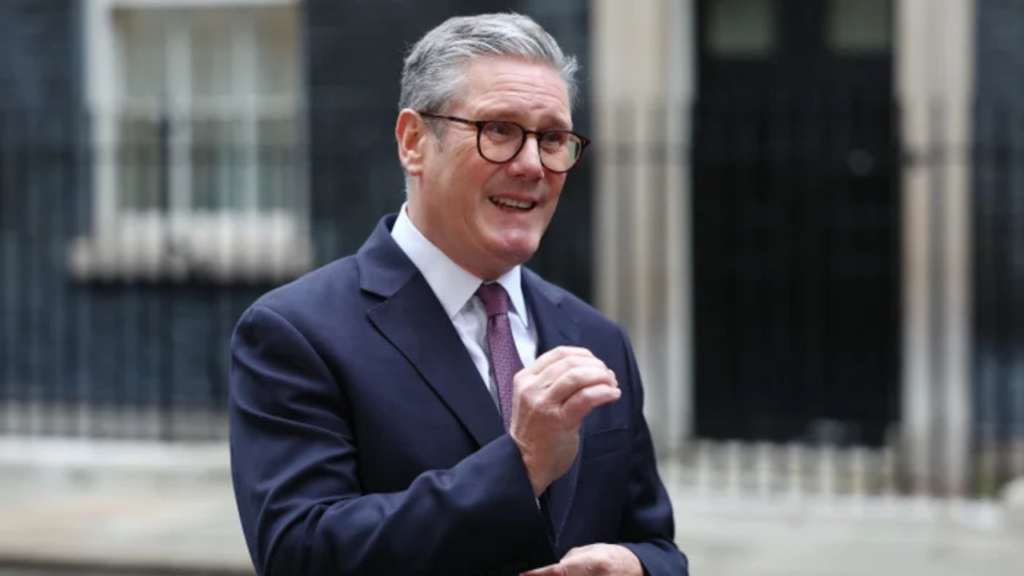A statement made by Labour leader Sir Keir Starmer on the possibility of raising national insurance through his party’s economic vision for the 2017 budget has long been debated between politicians and the public.
The announcement, though incomplete, however, has witnessed sharp criticism from many different critics and amongst them, even a few of his own party’s members are in the fears that it would breach Labour’s manifesto commitments in 2019.
Critics have also argued that raising national insurance goes against what Labour Party promised, while the supporters feel that it is essential to impose it for building public finances and making sure that key public services remain well-funded.

As the political setting in the UK continues to grow more uncertain, an increase in national insurance proposed by Starmer might bear enormous implications both for his party and the country.
The Context: National Insurance and Its Role in the UK Economy
National insurance contributions (NICs) are an important component of the UK tax system, first adopted in the early twentieth century to fund social security benefits. Today, they are important to funding essential services, particularly the National Health Service (NHS) and state pensions.
NICs are paid by both companies and employees, and changes in rates can have a direct influence on workers’ take-home pay and business expenses. Starmer’s indication of a possible hike in national insurance rates comes at a time when the UK economy is dealing with a number of issues, including post-pandemic recovery, the cost-of-living crisis, and continued inflationary pressures.
Public spending demands, notably for healthcare and social care, have been increasing, putting a substantial strain on the government’s budget. Given these problems, Starmer and his team is supposedly considering raising NICs in a wider package of measures as a means to raise more money to fund essential public services.
This has given the voters and opposition leaders sleepless nights because they still remember what Labour promised in its manifesto for 2019-not to hike working-class levies such as income tax, VAT, or national insurance.
Criticism of Starmer’s Approach
The proposal to increase national insurance contributions has faced immediate, direct, and noisy opposition from those who believe this is a betrayal of Labour’s election promises. During the 2019 general election campaign, Labour, led by Jeremy Corbyn, promised not to raise taxes for the vast majority of working people.
This vow was intended to reduce the tax burden on low- and middle-income people, but the party instead proposes increasing taxes on the wealthiest individuals and corporations. Many in Labour saw Starmer’s likely flip on this topic as a severe breach of trust with voters.
They say that the party’s manifesto constitutes a social contract with the voters, and that any divergence from those commitments risks alienating significant voter bases, particularly in the so-called “Red Wall” constituencies, which Labour hopes to reclaim after losing them to the Conservatives in 2019.
This has, however been seized upon by the opposition, which it accuses him of capitulating over progressive economic values of the party in favor of measures that impact working people disproportionately.
The Conservative MPs quickly pointed out Labour’s inconsistency on the tax policy while some of the Left voices inside Labour have warned that a National Insurance increase would worsen the existed imbalances in the UK.
Defending the Proposal: Starmer’s Rationale
However, despite the outcry, Starmer’s team has defended the proposed national insurance hike as a reasonable response to the country’s economic woes. At such historic levels of debt and rising demands for public services, Labour leadership believes that collecting more money is the only way forward to avoid cutting even more public spending.
The NHS, in particular, has come under immense strain, with medical care waiting lists reaching all-time highs. Social care remains another key area that is badly in need of overhaul and, as yet, grossly underfunded. There can be little doubt that Starmer has emerged as a decisive leader who takes the tough calls for the greater good, though necessarily unpopular in the short term.

In response to accusations of violating the party’s program, Starmer’s supporters have pointed out that the political and economic landscape has evolved considerably since 2019. The COVID-19 outbreak, the crisis in Ukraine, and growing living costs have all put further strain on public coffers, making some of the manifesto’s pledges less realistic.
They contend that the necessity to adapt policies to actual reality is indicative of good governance, not inconsistency. Furthermore, Starmer has presented the proposed national insurance increase as part of a larger effort to make the UK’s tax system more equitable.
In order to keep the party’s commitment to progressive taxes, he has suggested that the hike be focused at higher earnings and employers rather than low-income people. Starmer seeks to find a balance between fiscal responsibility and social justice by putting more of the tax burden on those who can afford it.
The Potential Impact on Labour’s Electoral Prospects
Indeed, the future for the UK and also that of Starmer, in politics, will be defined in part by his national insurance approach. On one hand, this is the way to attract even centrist voters who are anxious about the public finance status by signaling fiscal responsibility and readiness to take hard economic decisions.
On the other side, such widespread outcry about Labour’s breaking promise would alienate them from core voters, mainly in working-class neighborhoods. Thus, for example, typically Labour voters are low-and middle-income earners, and such higher tax burden initiatives could prove particularly sensitive for this group.
If he fails to win them over on the line that his policies represent their interests, Labour can lose ground quickly in those constituencies. The story the Conservatives will use against Labour in the campaign is that it is a party that cannot honor its commitments. With the next election projected to be a close race, any apparent discrepancy in Labour’s manifesto might become a significant problem.
What Comes Next?
Starmer has yet to fully detail his economic agenda, including whether a national insurance increase will be included in Labour’s budget proposal. However, the mere mention of such a strategy has sparked discussion within the party and throughout the country.
In the next few months, Starmer is going to have to navigate a minefield of national insurance and taxation in general. This will mean balancing the need for more public spending with the need not to impose further financial strain on working families.
He will also have to face critics who say the party manifesto commitments have to be scaled back, and regain the trust of those who feel betrayed by the impression that there has been some sort of policy shift. Against this backdrop, all eyes will be on how Starmer and his team engage with such issues as the budget deadline draws near.

Whether or not he can put forward a future looking vision of the UK economy is, therefore, a critical variable for success at the next general election. In the meanwhile, the national insurance row will also attract much attention in Britain and have consequences well beyond current fiscal concerns.
Conclusion
This has been bitter attack and fierce denunciation from within and outside Keir Starmer’s party for the proposed national insurance increase, wherein some believe it to be an utmost measure needed to bridge the UK’s growing fiscal difficulties, while others view it as a betrayal of Labour’s electoral promises.
While trying to navigate through these political complexities, Keir Starmer’s decisions in the coming two months would script the future for the party and Labour’s prospects in the election.
FAQs:
What did Keir Starmer hint at in the upcoming budget?
Starmer suggested possible national insurance increase within the Labour budget to reduce the fiscal stress and finance significant public services.
Why is the national insurance hike being criticized?
It breaks Labour’s 2019 manifesto pledge to not raise taxes on workers, which others said broke the consistency of the party.
What impact could this have on UK businesses?
An increase in employer NICs raises labor costs for firms, which will influence the hiring and compensation decisions made by these firms.
What are the long-term implications of a national insurance hike?
From the above, the increase would save much-needed funds for public services, but on the other hand, it will lead to the decline in disposable income of the working population and therefore less economic stability.

